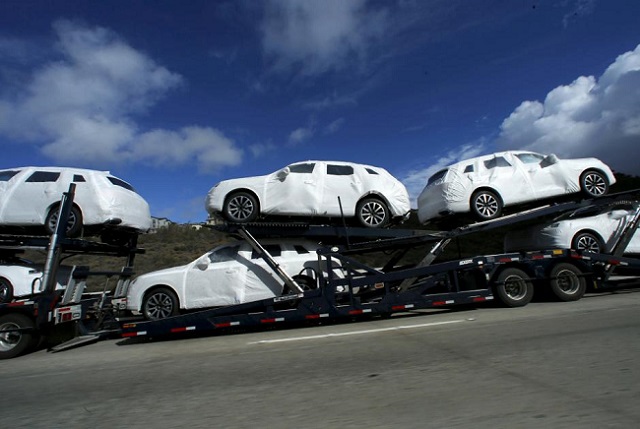
The US Department of Transportation and supporters of the rule, set to take effect on December 18, say it will save lives and make the nearly $700 billion trucking industry more efficient. Opponents contend the technology is unreliable and the $1.8 billion price tag is excessive.
Small operators - many of them Trump backers - view the Republican president’s response to requests for a delay as a test of his avowed support for small business.
Fiat Chrysler CEO says in talks with Hyundai on tech partnership
“One of the things we voted for, I voted for, was a change in the attitude in DC,” said Dick Pingel, a 64-year-old Trump supporter and independent trucker from Plover, Wisconsin. “I guess if he doesn’t do anything about it, government’s not listening to the small guy again.”
The White House directed questions about the rule to the Transportation Department.
A representative for the Federal Motor Carrier Safety Administration (FMCSA), a division of the Transportation Department, said by email that the rule would be implemented as scheduled.
Opponents are still trying to persuade the president to take action.
Republican US Representative Brian Babin, a former truck driver, wrote Trump last month asking that the rule replacing pen-and-paper logs of drivers’ hours with monitors synchronized with engines be delayed at least three months.
Nearly 30 business groups backed Babin’s letter, which said the rule’s launch at the height of the holiday season could snarl Christmas deliveries.
Babin said by phone that he had spoken with Trump generally about helping small and mid-sized truckers when the president visited lawmakers last month to discuss tax legislation.
“He assured me that he will,” said Babin, who has been unsuccessful in securing a delay through legislation.
Indiana Attorney General Curtis Hill Jr sent a letter to FMCSA last week seeking a postponement. The letter is being reviewed, the agency said.
“FMCSA has listened to important feedback from many stakeholder groups,” said the representative, who asked not to be named, adding that the agency’s primary focus was implementing the rule “in a manner that does not impede the flow of commerce and maintains and improves safety for operators and the public.”
The regulation set into motion under Democratic President Barack Obama in 2015 requires most interstate truck and bus operators to switch to the electronic monitors.
FMCSA says the shift affecting about 3.4 million truckers will keep fatigued drivers off the road and save $3 billion by eliminating paperwork and reducing crashes.
An industry survey in 2016 of mostly small operators found that 84 per cent lacked the monitors.
The industry’s largest trucking companies such as Schneider National and Covenant Transportation Group have used electronic logs for years and have been fierce proponents of the rule, arguing that it boosts driver safety. Any effort to roll back the rule would face strong opposition from the biggest US truckers.
Tesla switches on giant battery in Australia
Paper logs allow transport companies facing razor-thin margins to fudge their books and boost drivers’ hours on the road, those backing the change say.
“It really does level the playing field for everybody, small, medium and large,” said Bill Sullivan, executive vice president for advocacy at the American Trucking Associations trade group.
A US appeals court rejected a legal challenge to the rule in 2016 by the 160,000-strong Owner-Operator Independent Drivers Association
The association and other critics of the regulation say the technology lacks standards and will cost operators up to $3,832 the first year it is installed.






1732347751-0/Express-Tribune-(1)1732347751-0-270x192.webp)


1732264554-0/Copy-of-Untitled-(68)1732264554-0-270x192.webp)







COMMENTS
Comments are moderated and generally will be posted if they are on-topic and not abusive.
For more information, please see our Comments FAQ